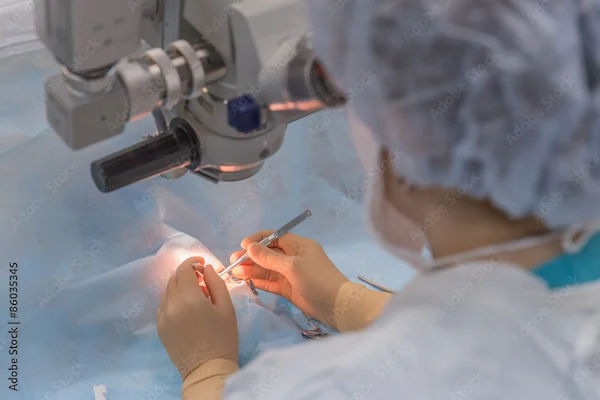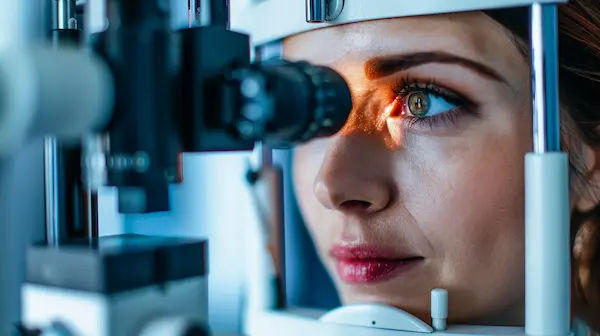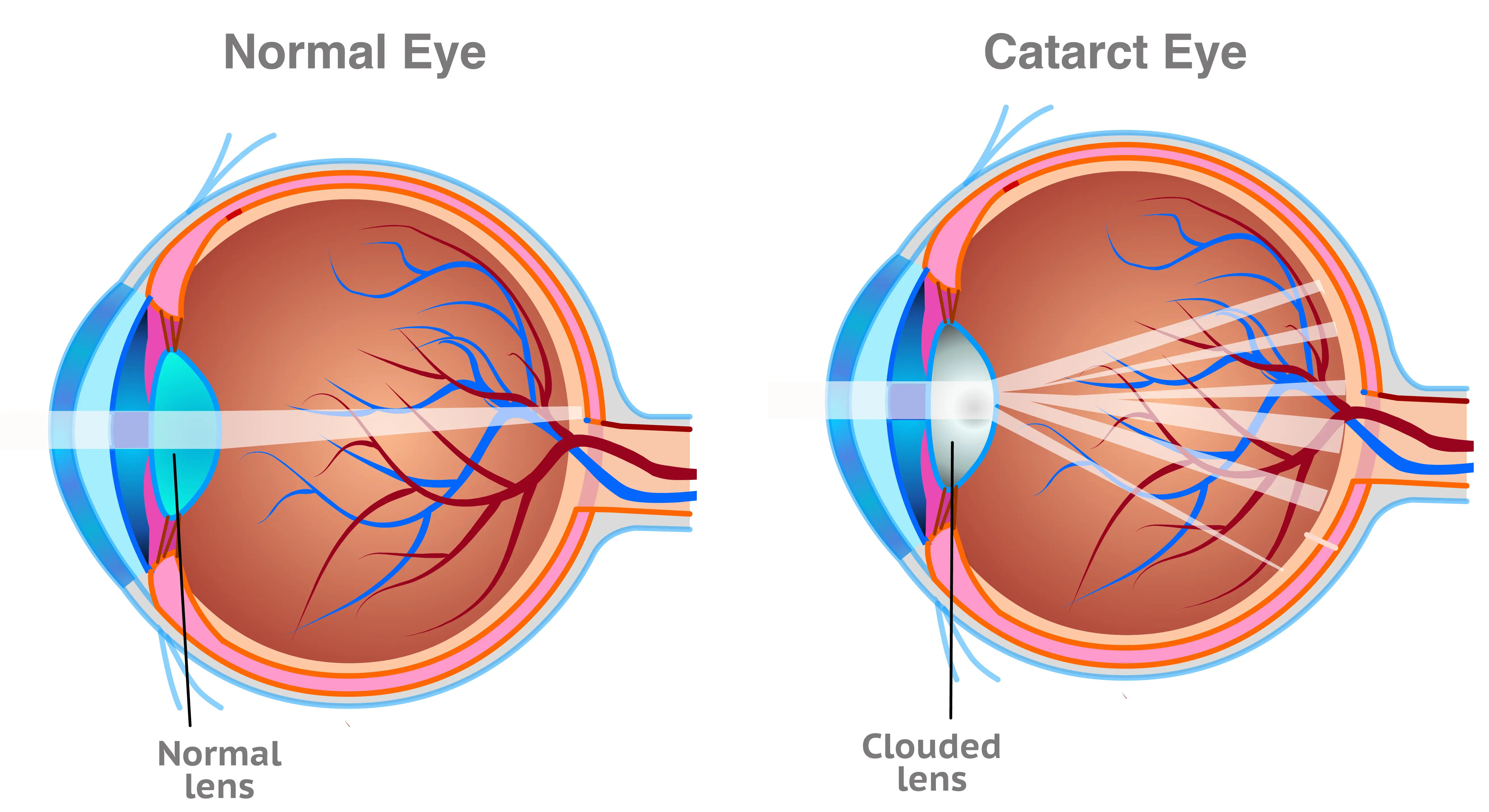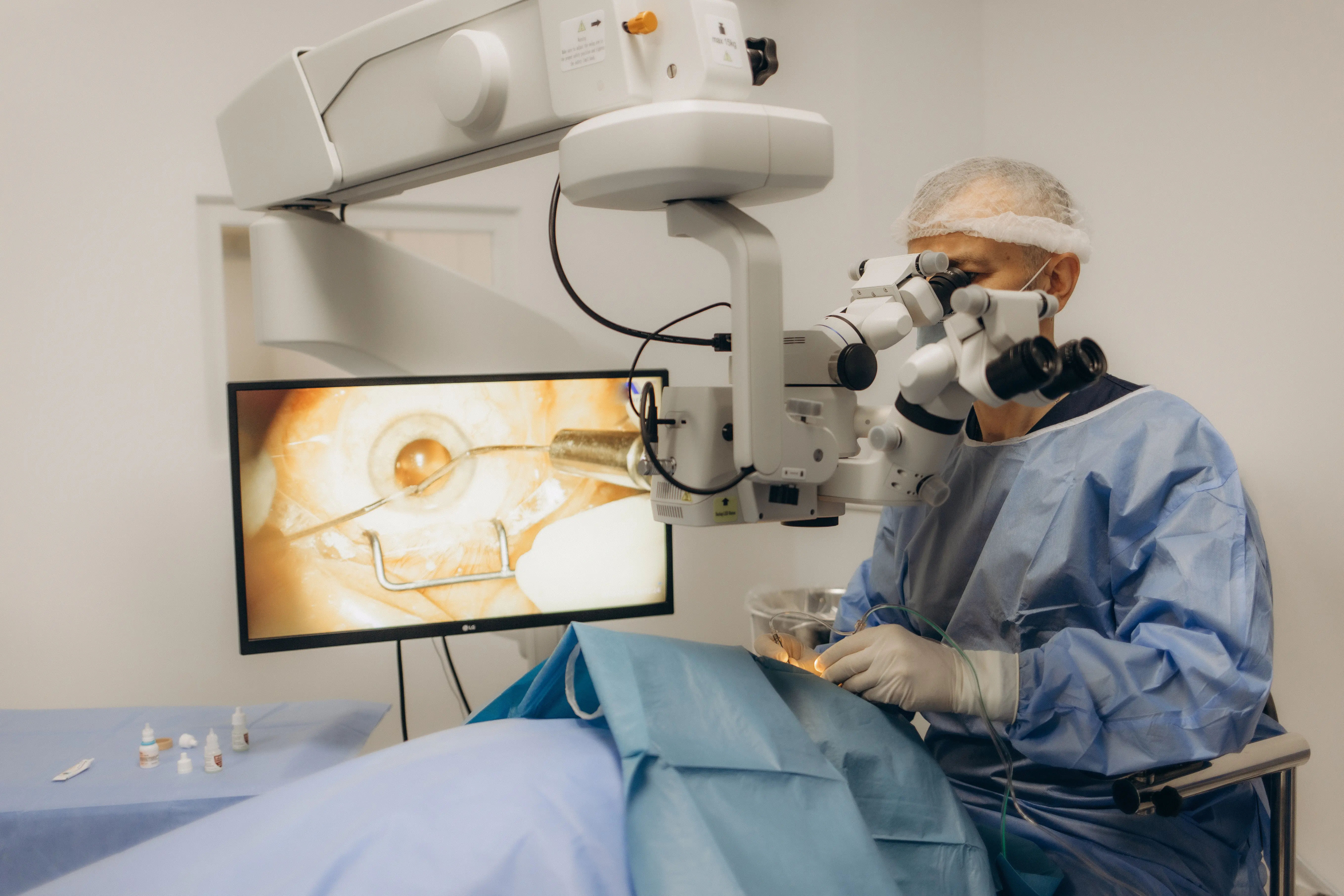Laser Lens Replacement Vs Laser Cataract Surgery
Understand the key differences between Laser Lens Replacement (RLE/CLE) and Laser Cataract Surgery. Learn what each procedure treats, how they differ in purpose, and which is suitable for vision correction vs. cataract removal.

Written by Dr.Sonia Bhatt
Last updated on 13th Jan, 2026

Introduction
If you or a loved one is dealing with cataracts or vision problems, you may have heard about Laser Lens Replacement (LLR) and Laser Cataract Surgery (LCS). Both procedures aim to improve vision, but they work in slightly different ways. This article will help you understand the differences, benefits, and which option might be right for you.
Understanding Cataracts and Vision Problems
What Are Cataracts?
Cataracts occur when the natural lens of the eye becomes cloudy, leading to blurry vision, difficulty seeing at night, and faded colors. It’s a common age-related condition but can also develop due to diabetes, eye injuries, or prolonged steroid use.
When Is Treatment Needed?
If cataracts interfere with daily activities like reading, driving, or recognizing faces, your doctor may recommend surgery. The two main options are Laser Lens Replacement (LLR) and Laser Cataract Surgery (LCS).
Laser Cataract Surgery (LCS): The Basics
What Happens in LCS?
LCS uses a femto second laser to make precise incisions in the eye, soften the cataract, and break it into smaller pieces for easy removal. The cloudy lens is replaced with an artificial intraocular lens (IOL).
Benefits of LCS
More precise than traditional cataract surgery.
Faster recovery due to less trauma to the eye.
Lower risk of complications like lens misalignment.
Who Is It For?
LCS is ideal for people with cataracts only, who want a quick and safe procedure to restore clear vision.
Laser Lens Replacement (LLR): A Broader Solution
What Happens in LLR?
LLR is similar to LCS but is often used even before cataracts develop. It replaces the eye’s natural lens with an artificial one (IOL) to correct presbyopia (agerelated nearvision loss), myopia (nearsightedness), hyperopia (farsightedness), and astigmatism.
Benefits of LLR
Corrects multiple vision problems at once.
Prevents future cataracts since the natural lens is replaced.
Reduces dependency on glasses with premium IOL options (multifocal or toric lenses).
Who Is It For?
LLR is best for those who:
Have early cataracts or high refractive errors.
Want long-term vision correction without glasses.
Are not good candidates for LASIK (due to thin corneas or extreme prescriptions).
Consult Top Specialists for Personalised Tips
Key Differences Between LLR and LCS
Key differences between LLR and LCS are:
| Feature | Laser Cataract Surgery (LCS) | Laser Lens Replacement (LLR) |
|------------|--------------------------------------------|----------------------------------------------|
| Purpose | Treats cataracts | Treats cataracts + corrects refractive errors |
| Lens Replacement | Only if cataract is present | Can be done before cataracts develop |
| Vision Correction | Mostly restores clear vision | Can eliminate glasses for distance/near vision |
| Best For | Cataract patients | Patients with cataracts + other vision issues |
Which One Should You Choose?
Opt for LCS if:
You only have cataracts and want a quick fix.
You’re comfortable wearing glasses for reading or distance.
Opt for LLR if:
You have both cataracts and refractive errors (nearsightedness, farsightedness, astigmatism).
You want permanent freedom from glasses with premium IOLs.
Recovery and Aftercare
Both procedures have a short recovery time (a few days to weeks). Follow these tips for a smooth healing process:
Avoid rubbing your eyes.
Use prescribed eye drops to prevent infection.
Wear sunglasses outdoors to protect your eyes.
Avoid strenuous activities for a week.
When to See a Doctor?
If you experience:
Severe pain after surgery.
Sudden vision loss or increased blurriness.
Redness or swelling that doesn’t improve.
Need expert advice? Book a consultation with an Apollo24|7 eye specialist today for personalized guidance.
Final Thoughts
Both Laser Lens Replacement and Laser Cataract Surgery are safe, effective ways to restore vision. The best choice depends on your specific eye condition and lifestyle needs. If you're unsure, consult an ophthalmologist to discuss the best option for you. With modern advancements, clearer vision is just a procedure away!
Consult Top Eye Surgeon
Consult Top Specialists for Personalised Tips
Meghana Kotesh
Ophthalmologist
3 Years • MBBS, MS (OPTHALMOLOGIST )
Bengaluru
Apollo Medical Center, Marathahalli, Bengaluru
Dr. Padmini S
Ophthalmologist
4 Years • MBBS,MS
Bengaluru
Apollo Medical Center, Marathahalli, Bengaluru

Dr. Zennat Tajmin Shah
Ophthalmologist
24 Years • MBBS,DNB (Ophthalmology)
Kolkata
Titanium Eye Care, Kolkata

Dr. Karan Paswan
Ophthalmologist
7 Years • MBBS,MS (Ophthalmology)
Kolkata
VDC Clinic, Kolkata

Dr. K Sreekumar Reddy
Ophthalmologist
26 Years • MBBS MD (Ophthalmology) EGESTOLP
Hyderabad
Apollo Hospitals Jubilee Hills, Hyderabad
(50+ Patients)
Consult Top Eye Surgeon
Meghana Kotesh
Ophthalmologist
3 Years • MBBS, MS (OPTHALMOLOGIST )
Bengaluru
Apollo Medical Center, Marathahalli, Bengaluru
Dr. Padmini S
Ophthalmologist
4 Years • MBBS,MS
Bengaluru
Apollo Medical Center, Marathahalli, Bengaluru

Dr. Zennat Tajmin Shah
Ophthalmologist
24 Years • MBBS,DNB (Ophthalmology)
Kolkata
Titanium Eye Care, Kolkata

Dr. Karan Paswan
Ophthalmologist
7 Years • MBBS,MS (Ophthalmology)
Kolkata
VDC Clinic, Kolkata

Dr. K Sreekumar Reddy
Ophthalmologist
26 Years • MBBS MD (Ophthalmology) EGESTOLP
Hyderabad
Apollo Hospitals Jubilee Hills, Hyderabad
(50+ Patients)




